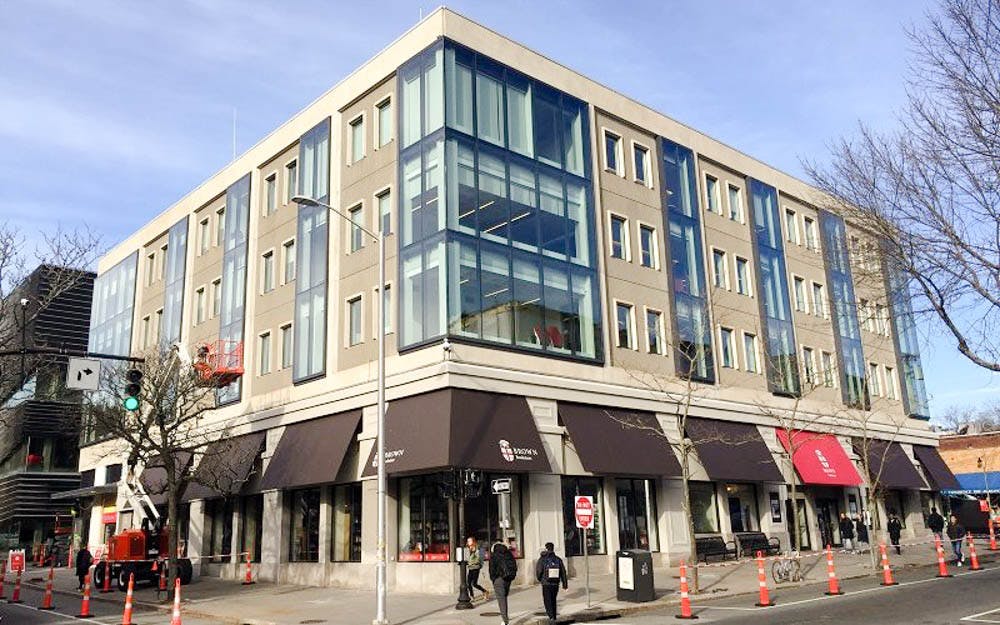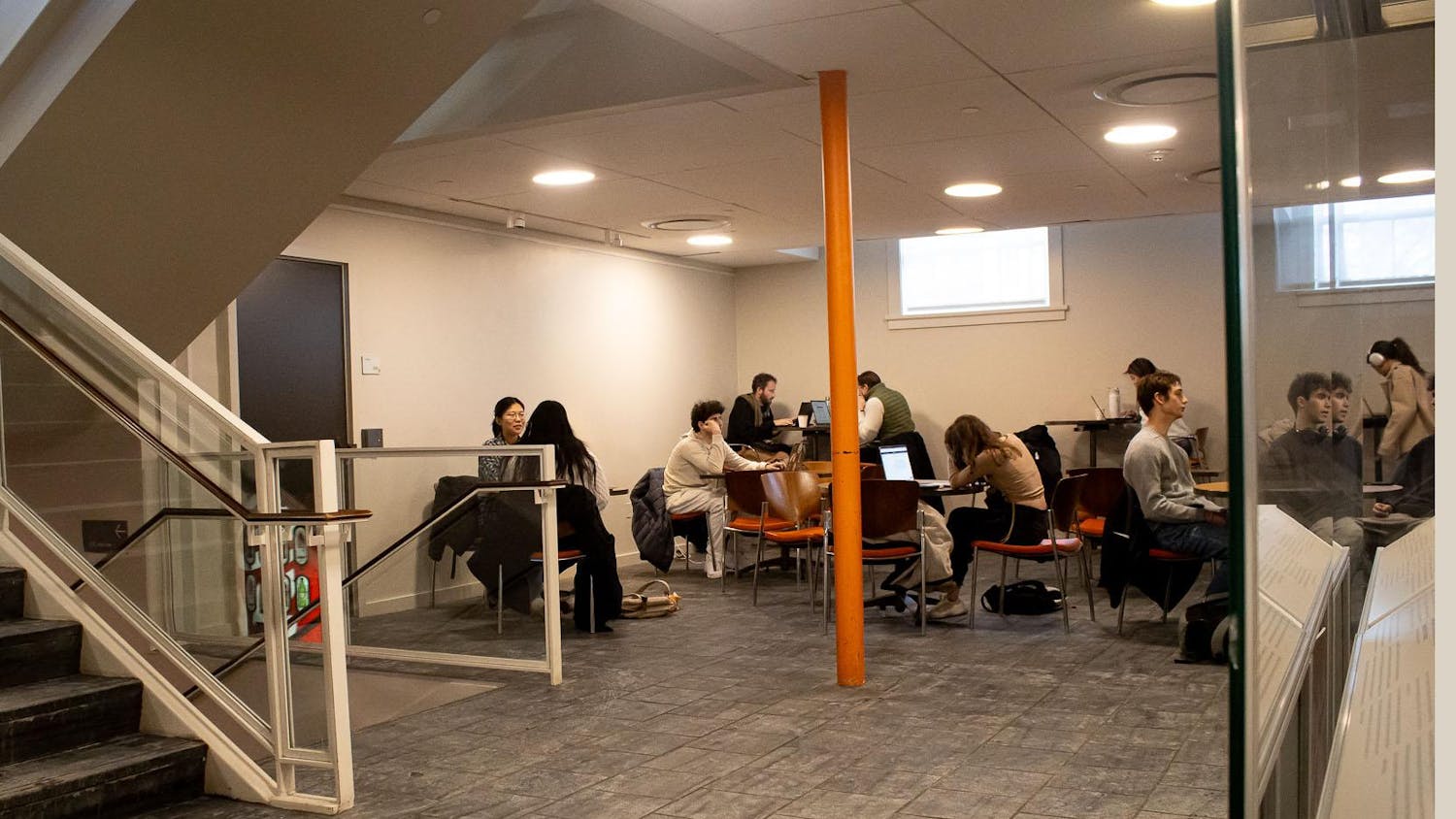The University’s Department of Education discussed its plans to implement widespread curricular changes across all of its undergraduate and graduate programs Monday in a forum with students.
The proposal, which would go into effect over the next two years, is still in the development process, Chair of the Department of Education Tracy Steffes told The Herald. If enacted in its current form, the redesign would focus on unifying the direction of the department’s three programs — the undergraduate concentration in Education Studies, the Brown Master of Arts in Teaching Program, and the Brown Master of Arts in Urban Education Policy Program — through an increased attention to urban education, diversity in education and hands-on experience in the classroom.
“One of our strengths as a department is urban education, and we decided to really put that in the forefront in thinking about our directions moving forward,” Steffes told The Herald. The department also seeks to “strengthen our commitment to diversity and inclusion in the required coursework,” he added.
As conversation develops surrounding the future of education studies at the University, faculty in the MAT program, undergraduate concentration and UEP program are working to consider the best way forward.
Education Studies Undergraduate Concentration
The education department is considering eliminating its two-track concentration and “replacing all existing concentration requirements with a new set of concentration requirements,” Steffes wrote in an email to The Herald.
If the department enacts the changes, the concentration would become more student-defined with “flexible specializations,” rather than the current two-track system of either History/Policy or Human Development, Steffes said. While students could still specialize in these areas under the new direction, they would also be able to “define other meaningful specializations within education based on their interests and in consultation with their advisors,” Steffes wrote.
“As a professor, I’m excited to work with students to work through (their) interests and to make their education work for them,” said Andrea Flores, assistant professor of education.
“I’m really glad that they’re trying to reform the requirements to make them more inclusive of other specializations,” said Moriah Tom ’21, an education concentrator. “I know that having to choose between the two current tracks can be restricting to some students,” she added.
Additionally, changes to the curriculum would alter the current breakdown of core courses and electives. In the redesign, all concentrators would take three required classes, four courses in their specializations and three additional electives. Currently, concentrators are required to take courses in Methods, History, Policy and Human Development; they then must take three or four Area of Emphasis courses, depending on their concentration track, as well as two electives.
The department is also in the process of developing a required “experiential component” for the education studies concentration, Steffes said. While still in the highly conceptual phase of planning, the department hopes to provide more practice-based experiences to its undergraduate students.
Proposed changes extend beyond course and track requirements. In response to student feedback that the concentration lacks a sense of community, the department also intends to create a two-course sequence required for all concentrators. The sequence would consist of an introductory class and a senior seminar that would together tackle issues of diversity and inclusion in education.
“We want to increase our DIAP-designated courses … and we do plan to be developing some new courses over the next couple of years,” Steffes said.
To complement strengthening its undergraduate program, the department is considering building a concurrent BA/MAT program, which the University hopes would attract Brown undergraduates to pursue a master’s in education at the University. The program would coordinate teaching experience with content preparation, Steffes said.
The department believes that the development of these concentration changes will take months of further discussion, including feedback from students and a presentation before the College Curriculum Council.
MAT Program
In the secondary education track of the MAT program, the redesign would expand students’ one-semester student-teaching experience to a “year-long residency” in an urban school. Currently, MAT students are placed throughout over a dozen schools in the state, mostly concentrated in suburban areas, Steffes said. Going forward, the department would “want to have three or four urban schools that we work really closely with,” she added.
The department has approached the Providence Public School District as well as charter schools Blackstone Academy and Paul Cuffee School about hosting MAT students during their residencies. While PPSD has expressed interest and recommended the implementation of an application process for interested schools in the district, the department has not yet “made any commitments” with any individual schools, she added.
The department would also change its recruiting tactics to emphasize that urban education is “the center of our program,” Steffes said.
An additional semester of residency would require MAT’s curriculum to undergo further changes, such as decreasing the number of electives that students take. MAT students currently take electives in their academic content area, but in this new direction, “we’re instead going to ask people … to already have a strong content background” when applying to the MAT program, Steffes said.
The shift away from content-based preparation would allow the department to develop courses in areas not previously prioritized by the department. Such coursework would include a class on technology and data assessment, as well as a class on special education, Steffes said, adding that “these are key issues for urban schools in particular.”
In addition to the anticipated new classes, the department is looking to train its students to work with English Language Learners across subject areas. The redesign would include an English Language Learner endorsement from the Rhode Island Department of Education. “(Having) teachers who are equipped to work with English Language Learners is one of the key needs of urban schools, and in Providence there is an especially critical shortage,” Steffes added.
The department also plans to add a math certification to the secondary education science program, in addition to the biology, chemistry and engineering/physics certifications already offered.
Steffes said she hopes to begin implementing changes in the 2020-21 school year.
“The hope is to roll out a lot of changes” in that time, she added.
While the secondary education track may soon see extensive changes, the primary education track remains suspended.
“Our strengths as a department and as a university are around secondary,” Steffes said, adding that “elementary education is critically important … (but) as a small department, we just didn’t feel like we did it to the level of excellence it requires.”
The University’s decision to suspend the elementary track beginning in the 2018-19 academic year, which sparked controversy on campus, was also due in part to the University’s observation of greater shortages in secondary education teachers than elementary, Steffes said.
The elementary track is “definitely not cancelled or eliminated,” Steffes said. “My hope is that in a couple of years we can think about what it would take to have an excellent elementary program as well.”
UEP Program
The Urban Education Policy program is anticipating changes that emphasize issues such as race, community context and educational inequality, Steffes said. Student feedback on the program had suggested that these issues were “too much in the background and needed to be a more central part of the coursework,” she added.
To address student concerns, the UEP program is planning on introducing two new courses that focus on race, democratic practices and community capacity building, wrote Director of the UEP Kenneth Wong in an email to The Herald. These courses will help to “form a more holistic body of knowledge and skills” in UEP students, Wong added.
The path to a redesign
The planning of the department’s new structure began over the summer of 2018, Steffes said. The stewardship of the agenda was organized by a committee consisting of Steffes, Flores, Director of the Annenberg Institute for School Reform Susanna Loeb and Director of Undergraduate Studies John Papay. But all faculty within the department were involved in developing the proposed program changes, Steffes said.
In crafting the direction of education studies, the department organized focus groups, conducted surveys of current and former students across all programs and collected expert opinions from peer institutions and community partners, Steffes said.
All of the department’s proposals are “still under discussion, and this discussion will continue into the next year,” but the department hopes to make a more definitive announcement about its new direction in the fall semester, Steffes added.





